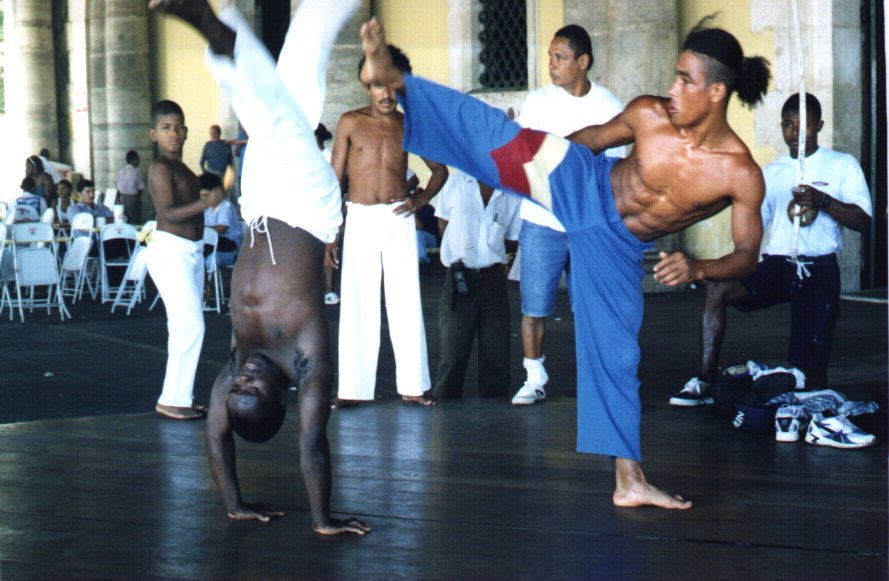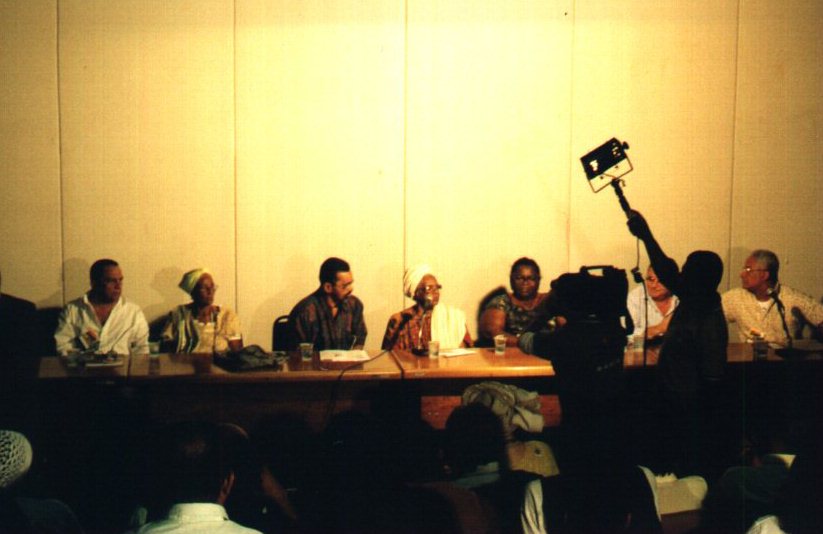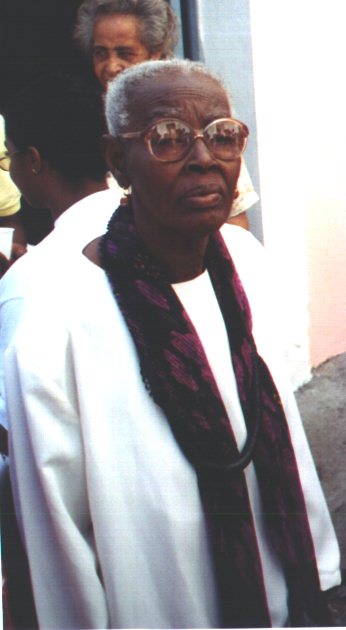

At the 5th Afro-Brasilian Congress participants discussed ways of nurturing their African heritage. They complained that while practices like capoeira or "our religion"--Candomblé are what attracts tourists and others to Salvador, the city does little to help them. Why isn't capoeira taught along side dance and gymnastics in the public schools? Why is the African religion, candomble, the subject of ridicule and critcism(particularly from the evangelicals) as devil worship?

At the Congress the adherents of candomblé said they would seek to establish a national organization to defend their African religion which remains under attack. They argued that candomblé has helped black people through the centuries to realize their capabilities in the face of a hostile Brazilian society. Yet they say they are often harrassed by the police enforcing laws against animal sacrifice. They say the media unfairly links their to crime, while refusing to include positive reports on candomblé in the religious sections of the newspapers. They complain that Brazilian prisons refuse to respect the rights of inmates to practice candomblé, while other religions are respected.
The gods of candomblé called "orixás" have adherents among many segments of the population, black and white. Fábio Lima says he switched from Catholicism to candomblé when he became an adult and took on the god Xango as his patron saint:
 Fábio Lima,
Candomblé Believer
Fábio Lima,
Candomblé BelieverMãe Hilda, who is credited more than any other single individual of bringing black pride to Salvador, is one of the founders of the cultural group "Ile Aye." She is also a "mãe de santo" or priestess of the candomblé religion.
 Mãe
Hilda, Canbomblé priestess
Mãe
Hilda, Canbomblé priestess